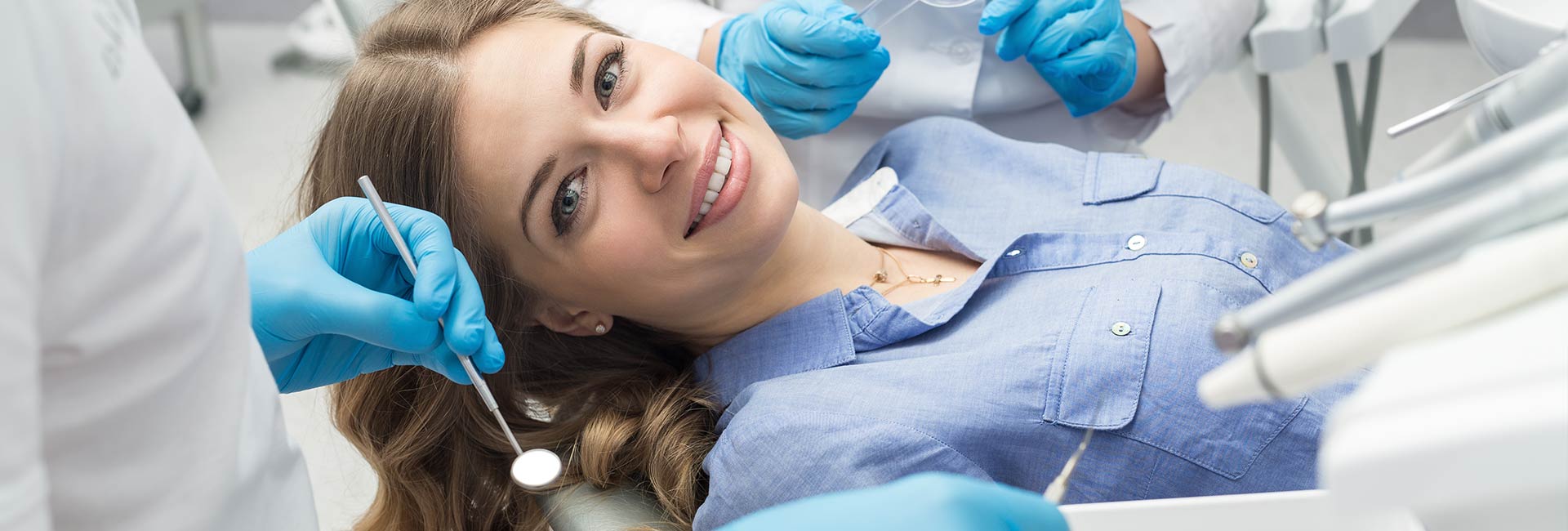There are many types of dental emergencies, but the bottom line is that if you are having pain or discomfort in your tooth, please do not hesitate to call us to come in for an exam. Delaying treatment will generally only make the problem worse, and our dentists will usually have some time reserved every day for last minute emergencies. We will do our best to see you the very same day and in many cases will be able to perform any needed treatment right away to relieve you of your pain. Examples of common dental emergencies are:
TOOTHACHE
If you have a tooth that is unusually sensitive, hurts to bite on, or simply causes you pain on its own, you need to come in to have it examined. There are many reasons why a tooth can cause you discomfort, but these symptoms will most likely not resolve on their own and may get worse over time. It may be an indication of an underlying issue such as a cavity or infection and these get more difficult to treat the longer they are left unchecked.
CHIPPED OR BROKEN TOOTH
The most common causes of chipped or broken teeth are either trauma or a grinding and clenching habit. In most cases, these teeth can be fixed if treated quickly enough. Your dentist will evaluate the tooth and determine the best way to proceed with fixing your tooth and restoring your smile and bite. If the damage has been caused by grinding, a mouth guard may be prescribed to prevent any further damage from occurring.
LOST FILLING OR CROWN
Fillings and crowns are done in order to restore a tooth to its natural shape and function. While these are considered permanent restorations, from time to time they can fail due to wear and tear over the years. While it may not be an emergency, we still would like to see you as soon as possible so we can diagnose the cause of the failing restoration and fix it as soon as possible. Leaving a lost or damaged restoration can lead to further damage of the tooth, and possible discomfort later on.
ABSCESS OR INFECTION
If you notice pain, swelling, or a drainage of fluid coming from your tooth or gums, please call us to get it checked out immediately. Even if it is not painful, this can be a sign of a serious infection or abscess and it needs to be treated as soon as possible. Leaving it for too long can lead to the infection spreading, which can lead to localized bone loss and subsequent loss of the tooth, or worse it can lead to a systemic infection that can be very serious if not treated promptly.
BROKEN APPLIANCE
Although this is not an emergency with your teeth, a broken dental appliance such as a Nightguard or Denture needs to be repaired. These appliances are made precisely for the function and protection of your teeth, and our dentists are all trained to diagnose and help you with these issues. Be aware that most appliances will need to be sent to a dental lab if they need to be repaired or remade so there’s a chance you may be without it for a day or two.
FAQs – Frequently Asked Questions
In general, any dental problem that needs immediate treatment to stop bleeding, alleviate severe pain, or save a tooth is considered an emergency. This consideration also applies to severe infections that can be life-threatening. If you have any of these symptoms, you may be experiencing a dental emergency.
There is no straight answer for when a broken tooth is a dental emergency. It depends on the severity of the breakage. For example, while minor chips can wait, a major breakage can cause so much pain that instant dental intervention is necessary. The dentist can always make room to attend to the emergency.
A tooth with a large chip, crack, or break at or near the gum line, may not bleed or swell, but be very painful. The biggest risks associated with large or deep cracks/chips is damage to the nerve and blood supply and infection.



